Protecting Pollinators in Sampson County
go.ncsu.edu/readext?832068
en Español / em Português
El inglés es el idioma de control de esta página. En la medida en que haya algún conflicto entre la traducción al inglés y la traducción, el inglés prevalece.
Al hacer clic en el enlace de traducción se activa un servicio de traducción gratuito para convertir la página al español. Al igual que con cualquier traducción por Internet, la conversión no es sensible al contexto y puede que no traduzca el texto en su significado original. NC State Extension no garantiza la exactitud del texto traducido. Por favor, tenga en cuenta que algunas aplicaciones y/o servicios pueden no funcionar como se espera cuando se traducen.
Português
Inglês é o idioma de controle desta página. Na medida que haja algum conflito entre o texto original em Inglês e a tradução, o Inglês prevalece.
Ao clicar no link de tradução, um serviço gratuito de tradução será ativado para converter a página para o Português. Como em qualquer tradução pela internet, a conversão não é sensivel ao contexto e pode não ocorrer a tradução para o significado orginal. O serviço de Extensão da Carolina do Norte (NC State Extension) não garante a exatidão do texto traduzido. Por favor, observe que algumas funções ou serviços podem não funcionar como esperado após a tradução.
English
English is the controlling language of this page. To the extent there is any conflict between the English text and the translation, English controls.
Clicking on the translation link activates a free translation service to convert the page to Spanish. As with any Internet translation, the conversion is not context-sensitive and may not translate the text to its original meaning. NC State Extension does not guarantee the accuracy of the translated text. Please note that some applications and/or services may not function as expected when translated.
Collapse ▲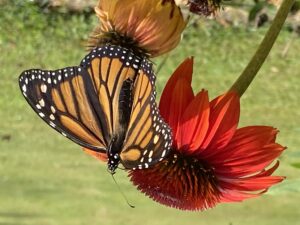
Attracting pollinators requires choosing the right plants and providing undisturbed habitat. Photo by Ann Butler, Master Gardener volunteer, Sampson County.
The gentle hum of bees, butterflies, and moths is the sound of success in Sampson County where Extension Master Gardener℠ volunteers are promoting and protecting pollinators to help farmers and home gardeners alike. Pollinator insects, birds and mammals are critical to the production of more than 150 food crops grown in the U.S. These same pollinators are needed to cultivate the landscape plants we enjoy and other species of animals depend on. Simply said, supporting pollinators means increasing the plant species they need all across our community.
Unfortunately, pollinator habitat has declined in the area over time, due to land clearing for development and farming. Many North Carolina farmers find they must “rent” pollinators to ensure successful fruiting of their crops. But hosting beehives during the flowering stage of a crop is expensive and time consuming. In response, Master Gardener℠ volunteers are encouraging farmers to leave a strip of native plants along the perimeter of their fields. Doing this encourages pollinators to return and increases the likelihood that nearby row crops are pollinated. Each year as the plants self-seed, the dependence on “rental beehives” is reduced.
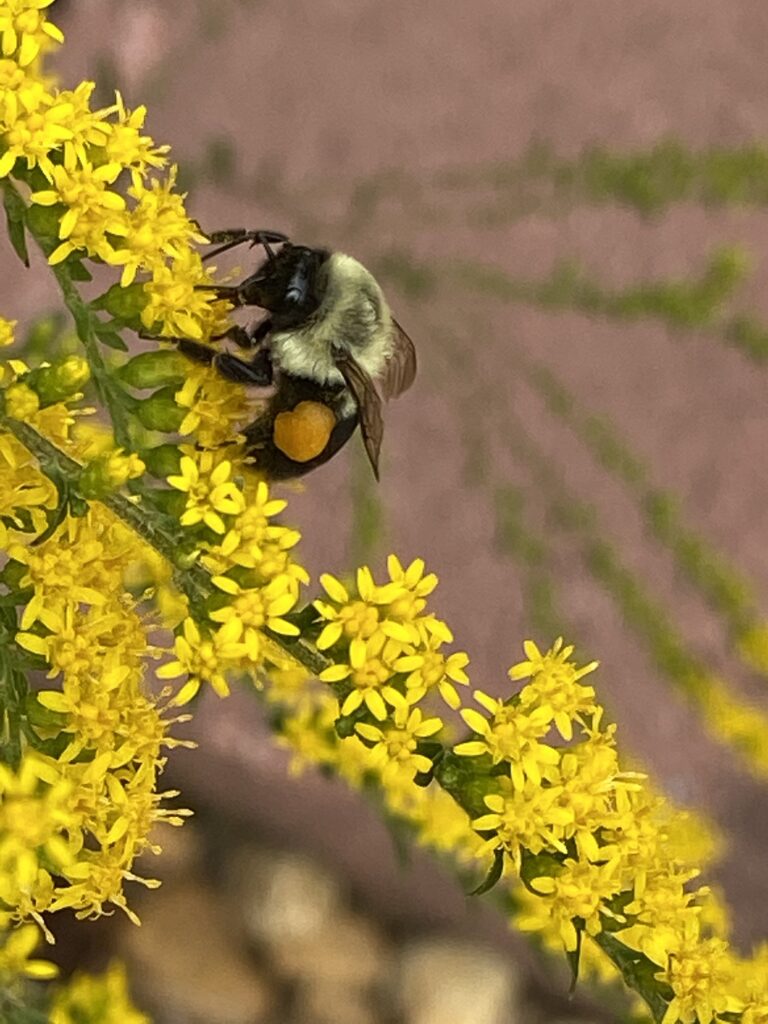
Pollinators support both farmers and home gardeners alike. Photo by Ann Butler, Master Gardener volunteer, Sampson County.
Similarly, home gardens and shared community spaces that feed and shelter a diversity of pollinators contribute to ecosystem health. At the N.C. Cooperative Extension, Sampson County Center, Master Gardener℠ volunteers have created a pollinator demonstration garden (and have four more under development) to demonstrate how homeowners, municipalities, businesses, and farmers can plant and maintain pollinator gardens in different areas of their landscapes.
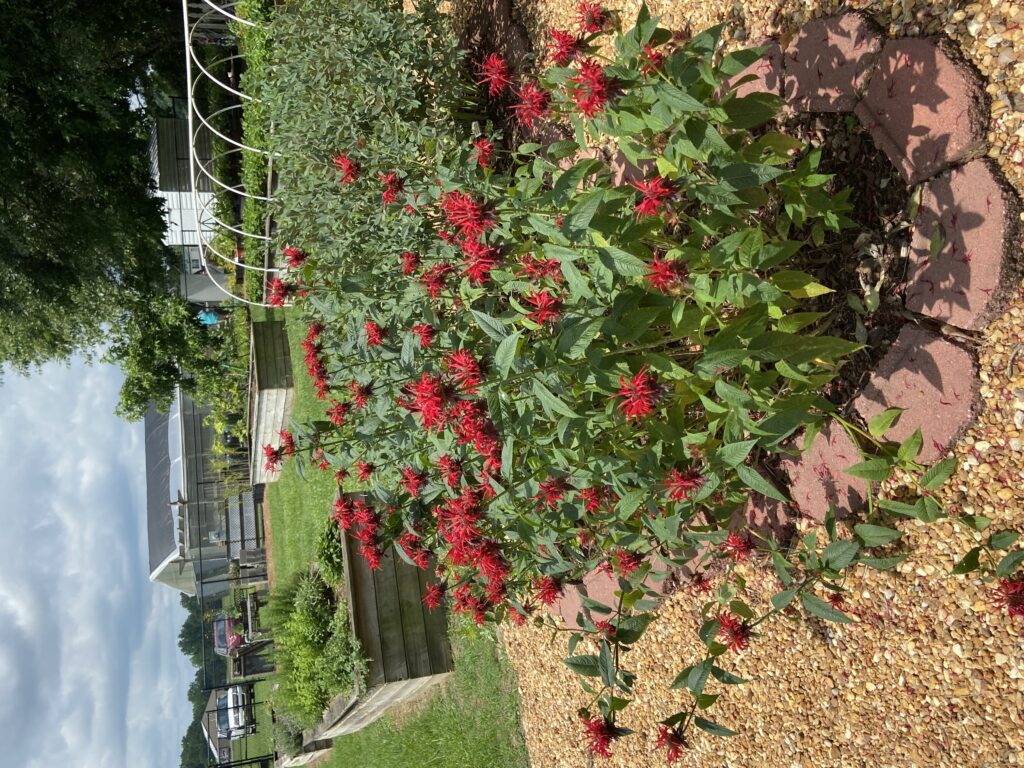
Pollinator demonstration garden at the N.C. Cooperative Extension, Sampson County Center, 55 Agriculture Place, Clinton, NC. Photo by Ann Butler, Master Gardener volunteer, Sampson County.
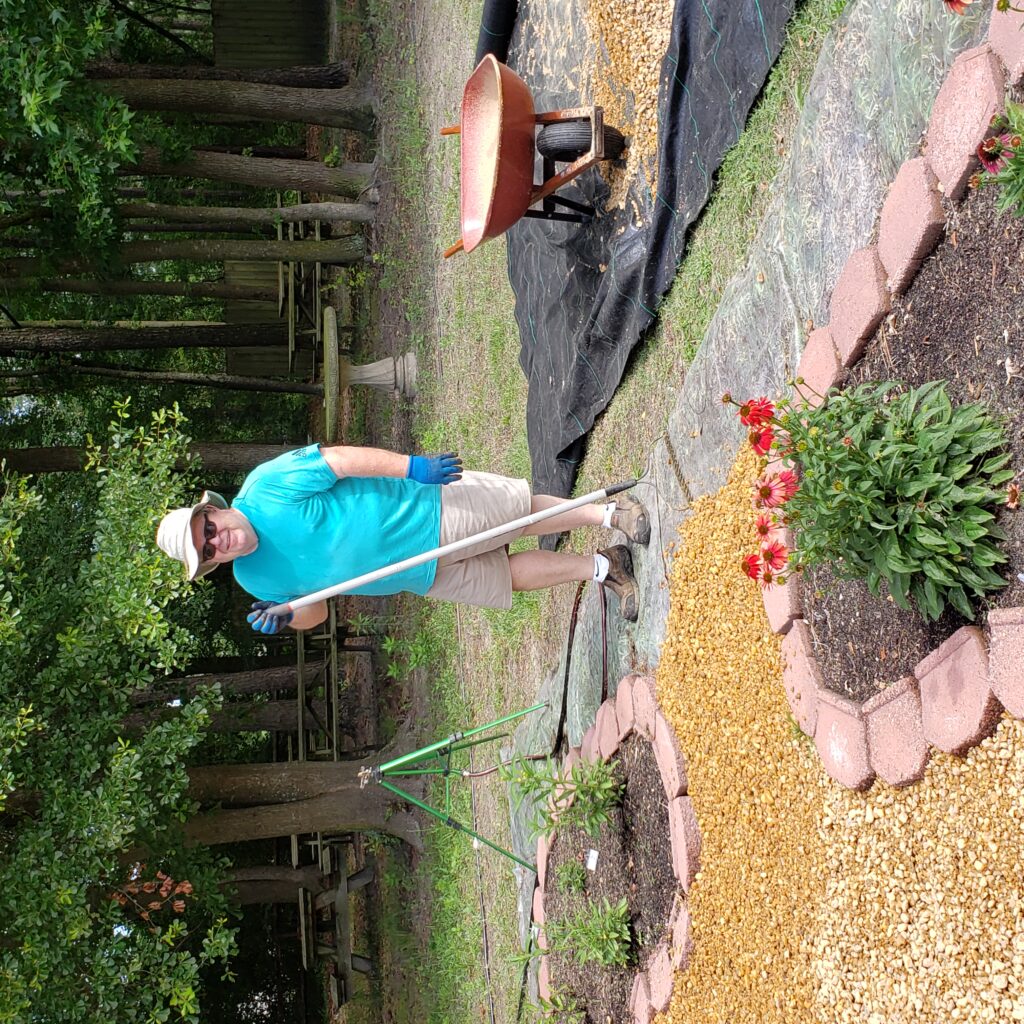
Master Gardener volunteer Bob Williams helped install the pollinator demonstration garden at the N.C. Cooperative Extension, Sampson County Center. Photo by Ann Butler, Master Gardener volunteer, Sampson County.
To expand their impact, Master Gardener℠ volunteers have partnered with local businesses and organizations interested in enhancing their outdoor spaces. Current projects include establishing pollinator-friendly plantings in downtown Clinton and other high-profile areas of the county.
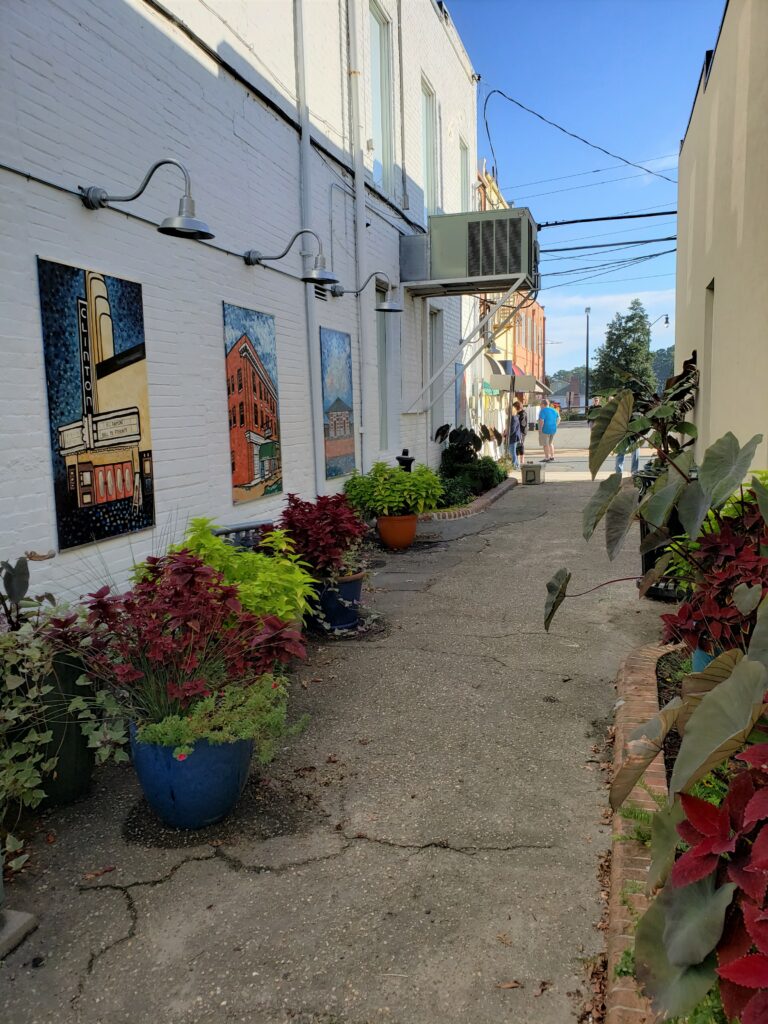
Master Gardener volunteers have enhanced alleyways in downtown Clinton with plantings. Their work around the county helps promote the program’s mission of connecting people to horticulture through science-based education and outreach. Photo by Ann Butler, Master Gardener volunteer, Sampson County.
Master Gardener℠ volunteers are also featuring pollinator-friendly plants at their annual plant sales. Meeting people one-on-one at their plant sales enables them to spread the word that Master Gardener℠ volunteers in Sampson County are a valuable resource for the community. Master Gardener℠ volunteer Bob Williams remarks, “Being able to talk to folks at our plant sales leads to learning about that person’s interests and gardening questions. It also serves to spread the word that Sampson County is always looking to add new Master Gardener℠ volunteers to their ranks.”
Developing relationships in the community broadens awareness of the Extension Master Gardener℠ program, says Master Gardener℠ volunteer Ann Butler. “Whether we are speaking to a civic club or a business owner, we are able to make them aware that we can help answer their plant-related questions. The more pollinators we bring into the community, the better off our ecosystem is as a whole. We are proud of the contributions of our farmers and want to support their success.”
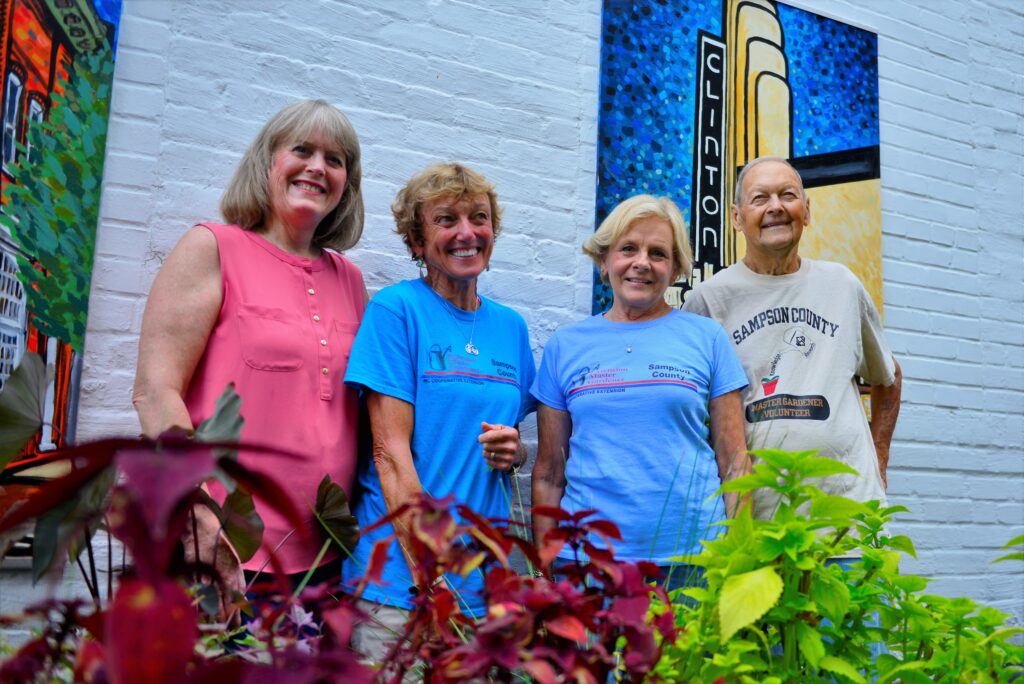
Extension Master Gardener volunteers in Sampson County (left to right: Joan Tsao, Nancy Thagard, Ann Butler and Chick Gancer). Photo by Mary M. Rose.
The pollinator demonstration garden at the N.C. Cooperative Extension, Sampson County Center, 55 Agriculture Place, Clinton, NC is open to the public seven days a week during daylight hours. The Master Gardener℠ volunteers of Sampson County have volunteer workdays two Wednesday mornings per month. Interested persons are always welcome to stop by and join in. For a schedule of upcoming workdays, call the N.C. Cooperative Extension of Sampson County office at 910-592-7161. To learn more about the Extension Master Gardener℠ program in Sampson County and their annual plant sale, email Brad Hardison. Explore hundreds of plant varieties that attract pollinators by visiting the North Carolina Extension Gardener Plant Toolbox.
Interested in becoming a Master Gardener℠ volunteer but don’t live in Sampson County? The NC State Extension Master Gardener program is offered in 84 of N.C. Cooperative Extension’s local Centers. Contact your local Extension center for help with your gardening questions or to learn more about becoming a Master Gardener volunteer in your community. Find who to contact in your county in the Garden Help Directory.
NC State Extension Master Gardener℠ volunteers connect people to horticulture through science-based education and outreach that empowers North Carolinians to cultivate healthy plants, landscapes, ecosystems, and communities. Support the work of Master Gardener volunteers across North Carolina by making a tax-deductible donation to the NC Extension Master Gardener endowment.


